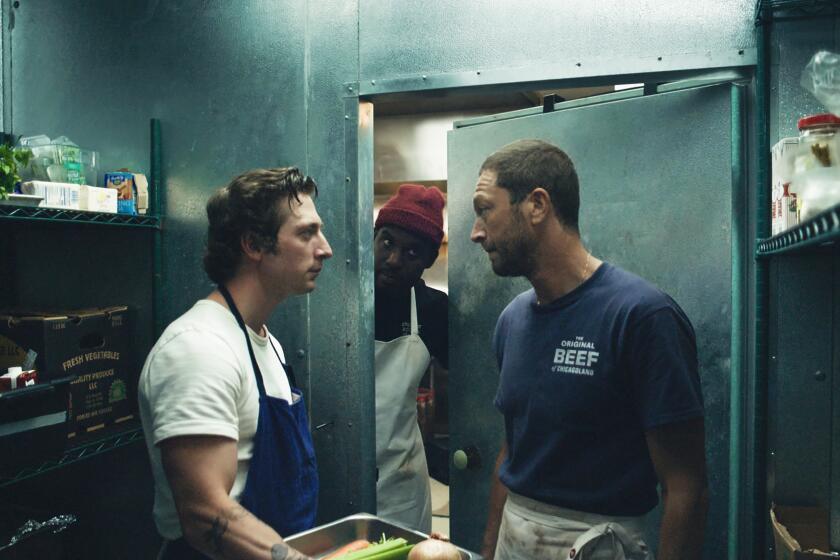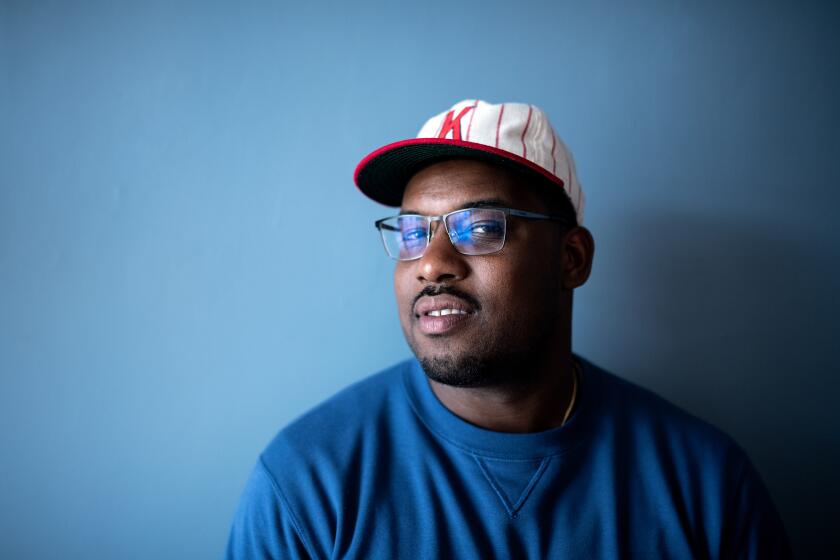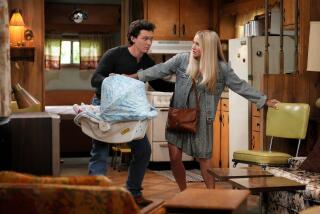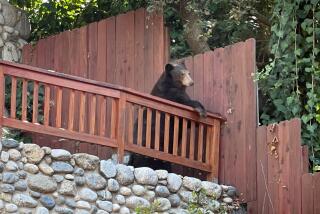Review: ‘The Bear’ Season 2 is chaotic and quiet, meditative and loud. It’s perfect
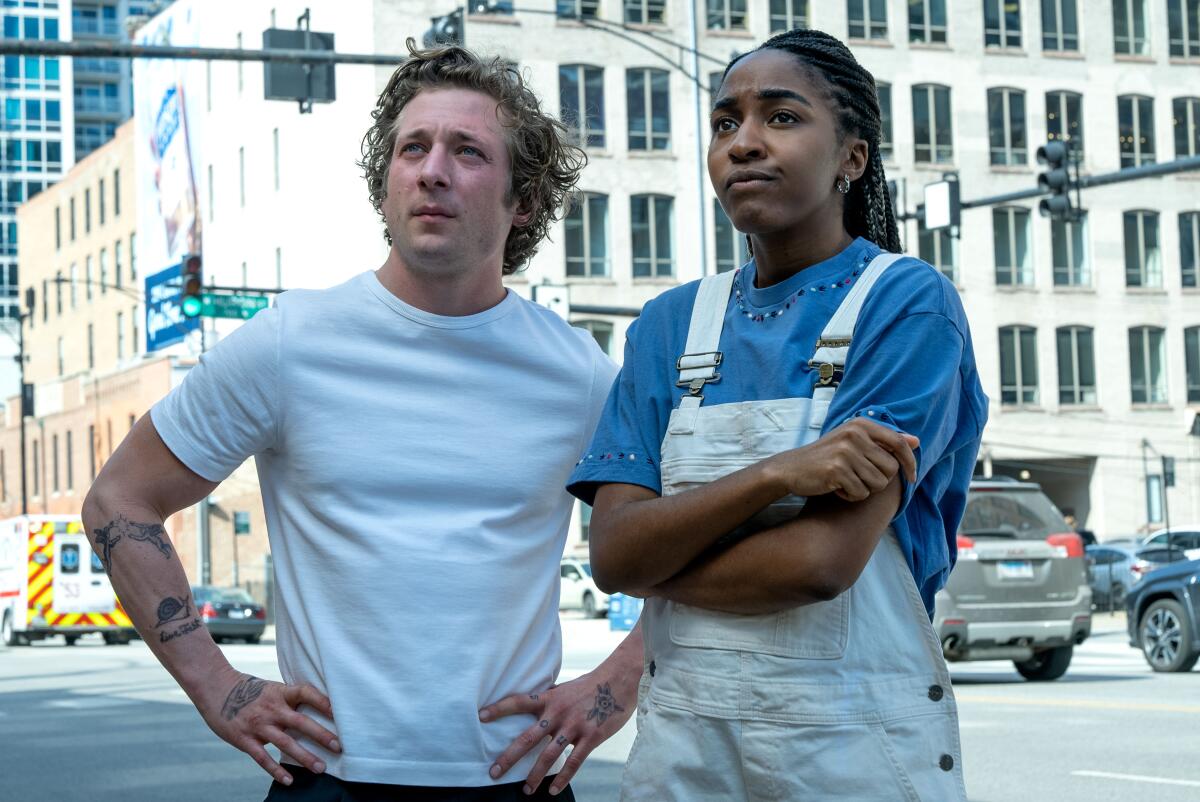
- Share via
“The Bear,” a story of food and the people who make it, is back. As my favorite new show of 2022, I have awaited its return with a combination of anticipation and trepidation — as one might feel awaiting the follow-up to an album that changed your life, or when bringing friends to a beloved restaurant with the hope it will live up to your memory and expectations, and the fear that it won’t.
Well, I’ve watched it all and, if anything, it’s an even better season of a show I already regarded as just about perfect. (Of course, it could not do what it does without that first season to build on.) To continue with the culinary metaphors, it presents just the right balance of acid and heat, salt and sweetness, with a little bit of fat — and, as with any brilliant meal, you experience it in the moment, even as you might be conscious of the work that went into it, the elements of its construction, the effort and the artistry that can turn the world beautiful and make you thankful to be alive in it. And at the end, you push back from the table, satisfied.
Jeremy Allen White stars as an elite chef who inherits his family’s struggling Chicago beef sandwich shop in “The Bear,” premiering Thursday on Hulu.
The first season (please go watch that now before reading further — I’ll wait) told the story of Carmen, called Carmy, called “Bear” (Jeremy Allen White), a James Beard Award-winning chef who returns to Chicago to run and refine the beef sandwich shop left to him by his late brother, Michael (Jon Bernthal). It ended with the discovery of $300,000 worth of rolled bills hidden in sealed cans of tomatoes, a magic trick that the new season does not bother to explain. (Though creator and frequent director Christopher Storer has, in interviews — it is a feature of “The Bear” that it doesn’t tell you absolutely everything about everything.)
This money, borrowed from rich Uncle Jimmy (Oliver Platt), presumably to expand the business, inspires Carmy to close the shop and open a first-class fine-dining establishment — its creation is the business of the new season, stretched to 10 episodes from eight, along with a smorgasbord of workplace conflicts (and comedy), family issues and a romantic possibility in the person of Carmy’s old friend Claire (Molly Gordon), gorgeous — and a doctor, yet.
As often happens in a second season, the series digs deeper into individual characters, and a couple who seemed a bit of a joke last time are taken more seriously and sympathetically here. As the catalyst of the action, the figure other characters knock against and a person himself in need of renovation, Carmen drove the first season; he barely figures in some episodes this year. His sister, Natalie, called Sugar (Abby Elliott), is now inside the business, managing things. Sydney (Ayo Edebiri), a sous chef at the Beef, the sandwich shop, is now Carmy’s creative partner and head chef in the Bear, the projected restaurant.
‘The Bear’ star Lionel Boyce takes us on a food crawl through Inglewood for breakfast, soul food, doughnuts and chicken wings.
Self-improvement is a theme — not an original theme, certainly, but, as with most everything in “The Bear,” expressed through untheatrical human speech and behavior. “We’re all here to learn,” Carmy tells the staff as they prepare for a dress rehearsal. Tina (Liza Colón-Zayas) is sent to culinary school to upgrade her skills. (She will sometimes call Carmy “Jeffrey,” playing off her resentful, first-season pronunciation of “chef” as “Jeff.”) Marcus (Lionel Boyce), the baker turned pâtissier, travels to Copenhagen for a new slant on desserts, where he has a fine scene with Will Poulter, as an old colleague of Carmy’s, working dough while they trade histories and talk about excellence. Troubled, troublesome “cousin” Richie (Ebon Moss-Bachrach), very much at the forefront this season, is dispatched to train at a restaurant so evolved it sometimes picks up a customer’s check.
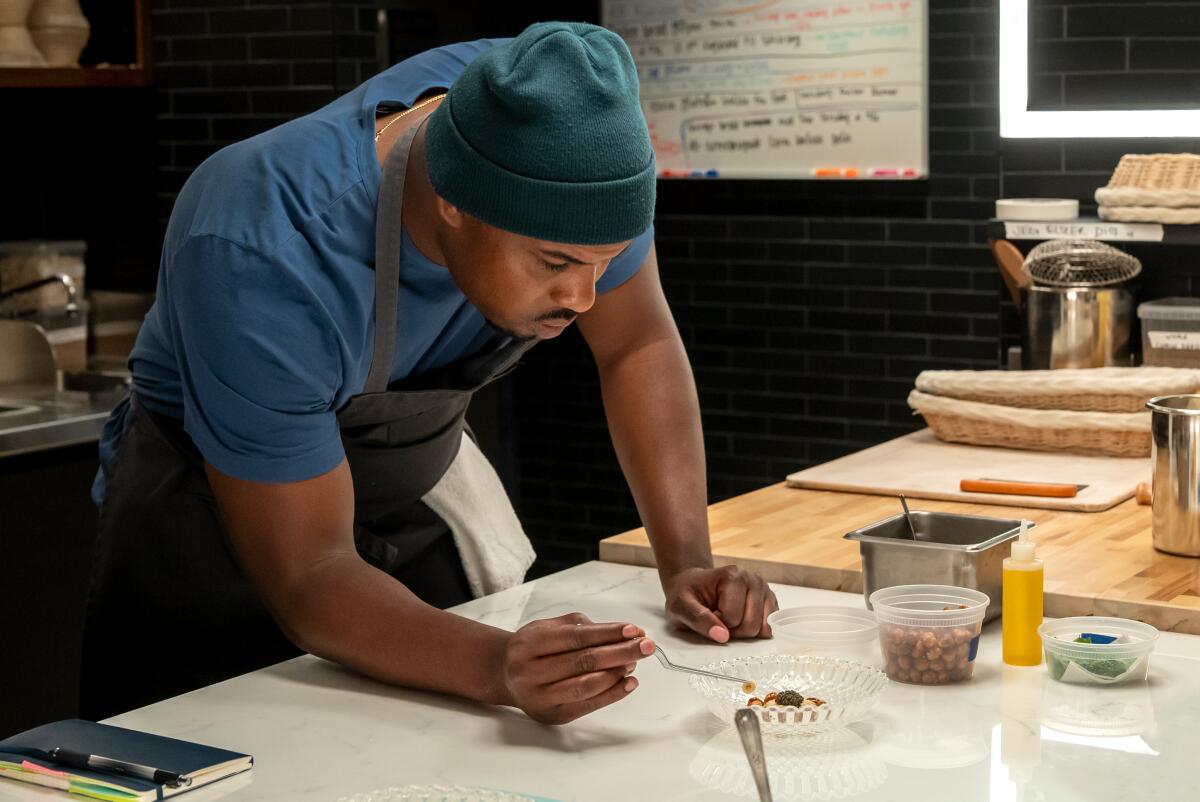
The series runs at two speeds — completely insane and unusually meditative — and there’s as much or more power in the quiet moments as in scenes where characters are moving at high speed and shouting over each other and the dialogue is all but incomprehensible. (A double-length flashback scene, set at a family Christmas dinner, is a marvel of organized chaos.) Storer and his editors know when to stretch time, and when to compress it, and exactly the moment to leave a scene — they do not always wait around for a last word. Takes run long — a five-minute conversation between Carmy and Sydney in a late episode, underneath a table they’re adjusting, is done in a single shot, with a slow dolly in.
There is an abundance of frame-filling close-ups. (Director of photography Andrew Wehde has a history with stand-up specials, good schooling for making the most of a face.) An incidental benefit of television — television like this, anyway — is that it allows one to study people with an intensity that would prove embarrassing in real life. You take in the lips, eyes, the line of a nose. It is sort of like falling in love.
These are, to be sure, especially good-looking or at any rate interesting-looking humans — camera-tested, made up and coiffed. But everyone has pores, and everyone who has survived into adulthood sports at least a few bumps and blemishes, and they are there to see. And you listen harder, perhaps, for the lack of extraneous distraction; it’s an unnaturally intimate view that demands an extra measure of naturalism from the performers. Nothing is remote here; to paraphrase Groucho Marx, if we were any closer, we’d be in back of them.
This makes “The Bear” electric in a way that is distinct from, though complementary to, the plot, whose various crises include broken door handles, malfunctioning fire suppression systems, mold and rot. In one of the season’s more obviously mechanical inventions, a ticking clock has been introduced into the narrative, surrounding the date of the restaurant’s opening. Actual clocks are seen throughout, along with a sign that reads “Every Second Counts”; laying out his new kitchen, Carmy times how long it takes to move from station to station.
Television and food have much in common, in the way they’re prepared and consumed. We speak of bingeing, snacking, of TV as comfort food. There are meat and potato shows with broad appeal, and exotically spiced series not to everyone’s taste; costly productions without flavor, and ones, through attention to detail, that turn common ingredients into something exquisite.
Everything matters. “It’s just a nice little fun detail so that when diners see it, they know that someone spent a lot of time on their dish,” Richie is told by a master chef (Olivia Colman, one of the season’s several famous guest stars) as she peels mushrooms. And that, in a sentence, is the recipe for “The Bear.”
‘The Bear’
Where: FX on Hulu
When: Anytime (Starting Wednesday, 9 p.m.)
Rating: TV-MA (may be unsuitable for children under the age of 17)
More to Read
The complete guide to home viewing
Get Screen Gab for everything about the TV shows and streaming movies everyone’s talking about.
You may occasionally receive promotional content from the Los Angeles Times.
